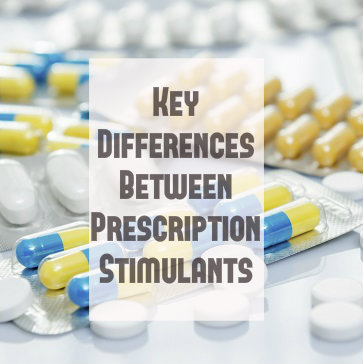What Are Differences Between Amphetamine, Methamphetamine, And Methcathinone?
Stimulants are drugs that increase your metabolism, heart rate and blood pressure. They make you feel alert, keep you awake, can help you focus, and may cause you to lose your appetite and lose weight. Among drugs that are abused, the amphetamine class of stimulants is both popular and dangerous. In terms of methamphetamine vs. amphetamine, it can be difficult to distinguish between the two, yet there are important differences.
Amphetamine and methamphetamine are prescriptions that help many people, but which also have a high potential for abuse. Another member of this class of drugs, methcathinone, has no clinical use, but has been discovered by abusers and is growing in popularity. It is important to learn about these common, but dangerous stimulants, especially if you are the parent of teens.
Amphetamine vs. Methamphetamine
 Amphetamine is a stimulant drug from which all other members of its group are derived. It is the base drug. As a stimulant, amphetamine acts on the central nervous system. It is most often prescribed for children with ADHD. It helps them to focus. Amphetamine is commonly abused by high school and college students as a study aid. It produces wakefulness and focus, which makes it a desirable tool for studying long hours. The risks, however, are great. Amphetamine causes side effects like nausea, headaches, shaking, insomnia, nervousness and more. It is also highly addictive.
Amphetamine is a stimulant drug from which all other members of its group are derived. It is the base drug. As a stimulant, amphetamine acts on the central nervous system. It is most often prescribed for children with ADHD. It helps them to focus. Amphetamine is commonly abused by high school and college students as a study aid. It produces wakefulness and focus, which makes it a desirable tool for studying long hours. The risks, however, are great. Amphetamine causes side effects like nausea, headaches, shaking, insomnia, nervousness and more. It is also highly addictive.
Methamphetamine is similar to amphetamine. Like amphetamine, it is a stimulant that increases wakefulness and alertness. It is less often prescribed for ADHD and in rare cases can be used to treat obese patients. Methamphetamine is prescribed less often than amphetamine because it is more harmful. It can cause lasting damage in the brain with long-term use and is extremely addictive. Because prescriptions for methamphetamine are scarcer, users often get it from amateur meth labs. Abusers of meth use it to get a high rather than to study.
Methcathinone vs. Methamphetamine
Another member of the amphetamine stimulant class of drugs, methcathinone, is similar to methamphetamine. Unlike meth, however, it has no clinical use. It is a Schedule I drug in the U.S. because it is dangerous and addictive. It is not prescribed to treat any medical conditions. Methcathinone is chemically very similar to methamphetamine and is also a stimulant.
Like both amphetamine and methamphetamine, methcathinone suppresses the appetite, increases wakefulness, heart rate and energy, and produces alertness in the user. The sense of euphoria that also comes with taking the drug is the main reason people abuse it. The feeling is described as being less intense than that imparted by methamphetamine. As with methamphetamine, methcathinone causes long-term damage and is highly addictive.
All members of the stimulant class of drugs have potential for abuse, but amphetamine, methamphetamine, and increasingly methcathinone are among the most common. Teens and young adults are often drawn to these drugs for either the high, the potential for a study aid, or both. Adults and parents should be aware of these drugs and the harm that they can cause.
If You Or Someone You Love Is Struggling With Stimulant Abuse, Call Us Now – Help Is Available 24/7



